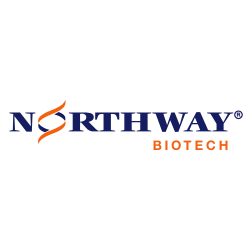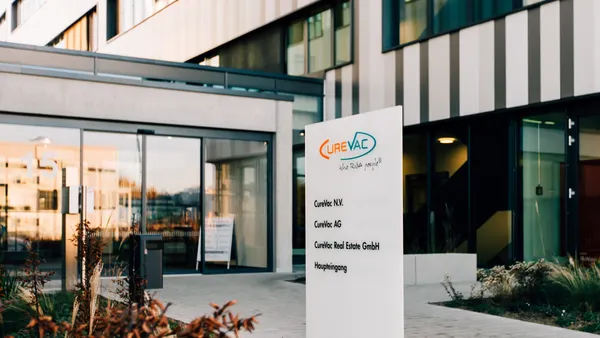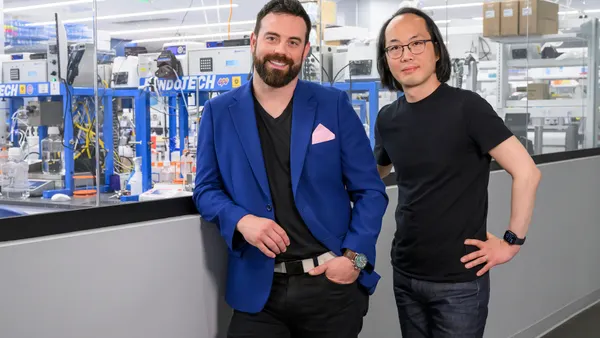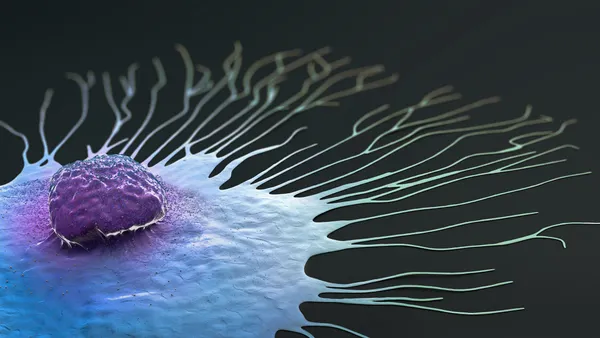Dive Brief:
- Abivax’s shares soared more than 500% on Wednesday after the company released positive Phase 3 results for its experimental ulcerative colitis medicine.
- The Paris-based biotech conducted two studies of its drug, obefazimod, in patients with moderately to severely active ulcerative colitis who didn’t receive enough relief from prior therapies. The 50 milligram dose of the medicine achieved a pooled 16.4% placebo-adjusted clinical remission rate at week 8, better than what was reported in Phase 2 testing, Abivax said late Tuesday.
- Researchers are now conducting a 44-week maintenance trial that should yield topline results in the second quarter of next year. If those results are also positive, Abivax plans to submit applications to U.S. and European regulators in the second half of 2026.
Dive Insight:
Abivax’s drug is the first in its class and offers another way to treat a disease that is increasingly attracting attention from drugmakers. Merck & Co., Roche, Pfizer and Eli Lilly have all spent billions of dollars in recent years to scoop up companies with experimental drugs to treat inflammatory conditions, including ulcerative colitis. Lilly is currently awaiting data from its experimental drug, MORF-057.
The new Abivax studies have pushed obefazimod to the front of the field for oral drugs that treat inflammatory bowel disease, Leerink Partners analyst Thomas J. Smith wrote in a note to clients. The market for IBD, which includes both ulcerative colitis and Crohn’s disease, will reach $30 billion by 2030, Smith’s team at Leerink estimates.
Smith now forecasts Abivax’s candidate to generate peak sales of about $4 billion for both ulcerative colitis and Crohn’s disease, compared with an earlier estimate of $2.6 billion. Obefazimod has a “compelling balance of efficacy, safety and convenience,” Smith wrote.
Abivax tested two doses in the ABTECT-1 and ABTECT-2 trials. The 50 milligram dose met its primary endpoints as well as all key secondary endpoints, the company said. The results for the 25 milligram dose did not reach statistical significance for clinical remission in the ABTECT-2 study, but the company said its pooled clinical response rate offered a “strong signal” that remission may come with longer treatment.
More than 600 sites around the world are participating in the ABTECT study program, which includes 1,275 patients and is one of the largest ever undertaken in ulcerative colitis, Abivax said. The company’s shares jumped to about 56 euros on the Paris exchange Wednesday, after closing at 8.90 euros Tuesday.













